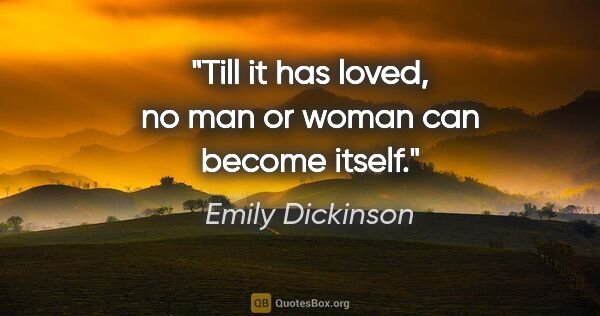Itself Quotes (page 119)
The liberty of a democracy is not safe if the people tolerated the growth of private power to a point where it becomes stronger than the democratic state itself. That in its essence is fascism: ownership of government by an individual, by a group, or any controlling private power.
Franklin D. Roosevelt
Books are the carriers of civilization. Without books, history is silent, literature dumb, science crippled, thought and speculation at a standstill. I think that there is nothing, not even crime, more opposed to poetry, to philosophy, ay, to life itself than this incessant business.
Henry David Thoreau
The Orient and Islam have a kind of extrareal, phenomenologically reduced status that puts them out of reach of everyone except the Western expert. From the beginning of Western speculation about the Orient, the one thing th orient could not do was to represent itself. Evidence of the Orient was credible only after it had passed through and been made firm by the refining fire of the Orientalist’s work.
Edward Said
In those days, we imagined ourselves as being kept in some kind of holding pen, waiting to be released into our lives. And when the moment came, our lives -- and time itself -- would speed up. How were we to know that our lives had in any case begun, that some advantage had already been gained, some damage already inflicted? Also, that our release would only be into a larger holding pen, whose boundaries would be at first undiscernible.
Julian Barnes
Music, this complex and mysterious act, precise as algebra and vague as a dream, this art made out of mathematics and air, is simply the result of the strange properties of a little membrane. If that membrane did not exist, sound would not exist either, since in itself it is merely vibration. Would we be able to detect music without the ear? Of course not. Well, we are surrounded by things whose existence we never suspect, because we lack the organs that would reveal them to us. [Was He Mad?]
Guy de Maupassant
The disciples of Jesus “found themselves thinking that if divine goodness were to manifest itself in human form, this (he) is how it would behave… he invited people to see differently instead of telling them what to do or believe…he located the authority of his teaching in his hearer’s hearts, not in himself or God-as-removed.
Huston Smith


